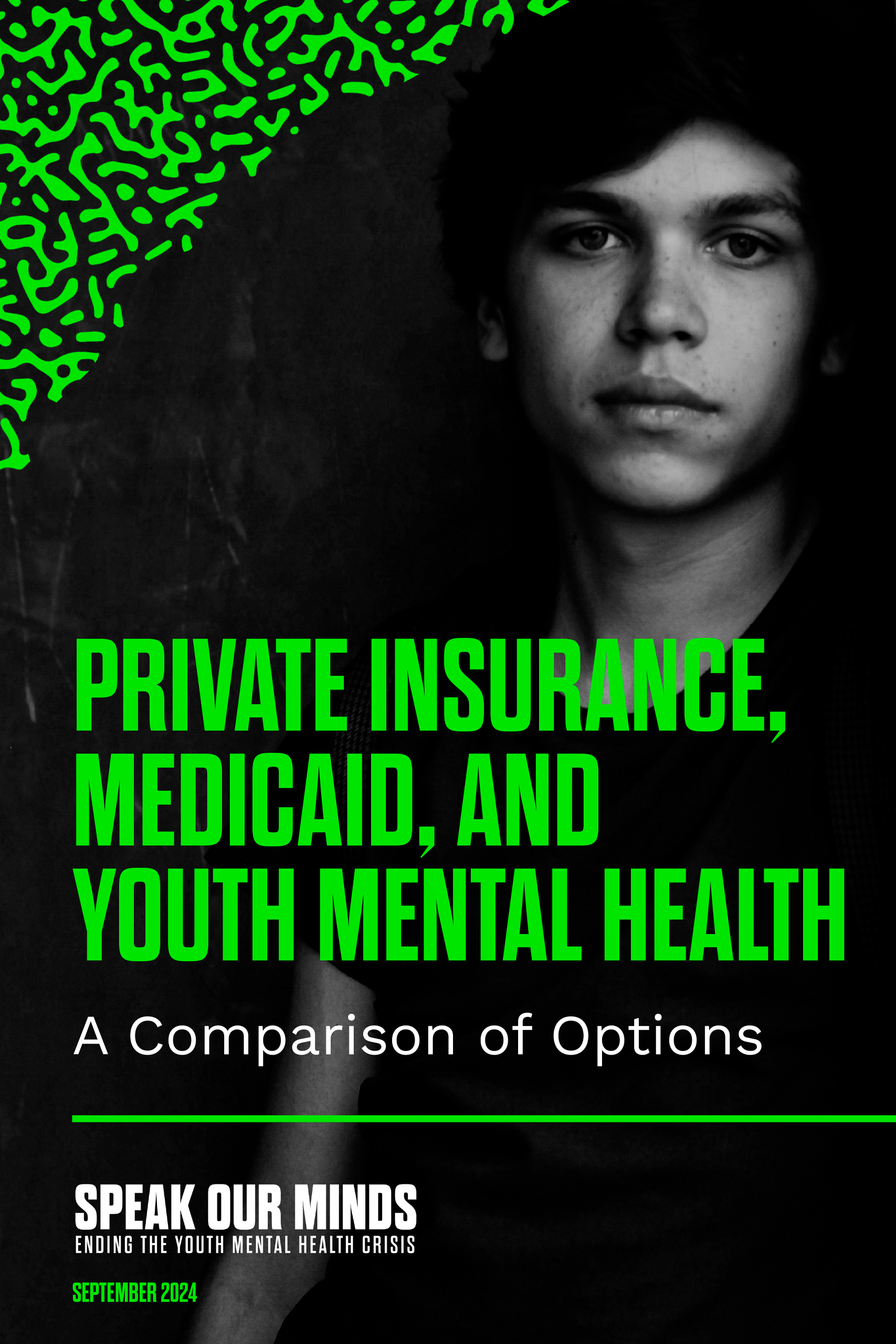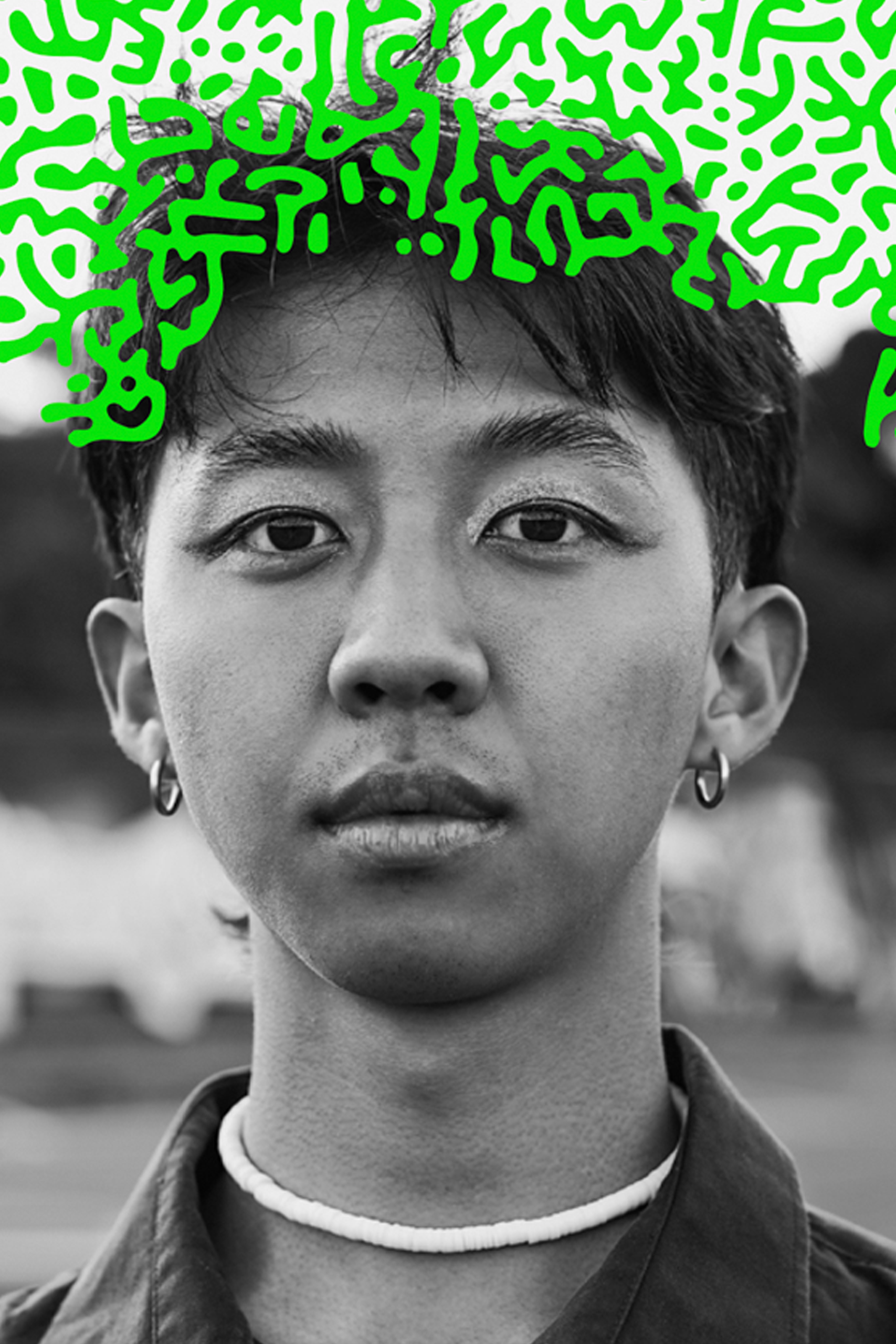New Study Finds Comprehensive Youth Mental Health Services Cost Prohibitive Under Employer Health Plans Report…
DENVER, CO – Today, the State of Colorado announced that on February 24, 2024, they settled the class-action lawsuit A.A. v Kim Bimestefer brought against them by Medicaid youth who were unable to obtain home and community based residential mental health services via Medicaid forcing them to be unnecessarily institutionalized for lengthy periods of time. Additional information on the lawsuit and the settlement is below.
“Settling this lawsuit is a great first step forward. Now we need to focus on working with the State to fix our broken youth mental health system by involving stakeholders to help develop a plan over the next year that will help keep our youth healthy and in their communities instead of emergency rooms and institutionalized,” said Heidi Baskfield, President and CEO of Speak Our Minds and one of the original organizers of the lawsuit.
Speak Our Minds will be focusing on bringing stakeholders together over the next several months to talk about what kind of a system of care will work for kids, their families, and their communities. These gatherings will be in advance of the stakeholder work the State will be required to do under the settlement agreement and should help jump-start the stakeholder work for the State once they have gotten their process started.
To sign up to learn more about this stakeholder work visit our website at SpeakOurMinds.org
Speak Our Minds: Ending the Youth Mental Health Crisis is the only organization that focuses entirely on creating an effective system of care to address the youth mental health crisis.
Speak Our Minds brings together providers, payors, parents, experts, elected officials and business entities to champion accessible mental health care. In other words, Speak Our Minds connects the dots to create life-saving change for America’s youth.
THE LAWSUIT
On September 3, 2021 a Federal Class Action Lawsuit was filed on behalf of three teenage plaintiffs and a class of thousands of Medicaid eligible children under the age of 21 who have been diagnosed with a mental health or behavioral health disorder and a doctor has recommended Intensive Home and Community-Based Services to correct or ameliorate their disorders, but they are not being provided the treatment from the State as required by federal law.
Similar Class Action Lawsuits have been filed against other States and have been successful in establishing a comprehensive system of care for children with a mental health or behavioral disorder in the States of Massachusetts, California, and Illinois.
The lawsuit was organized by Heidi Baskfield, President of Speak our Minds: Ending the Youth Mental Health Crisis, with support from The Colorado Federation of Families for Children’s Mental Health. Attorneys representing the Plaintiffs and supporting the case are Bob Farley, Farley Law, Jane Perkins and Kim Lewis, National Health Law Program, Bethany Pray, Colorado Center on Law and Policy; and Kelly McCullough and Emily Harvey, Disability Law Colorado. The goal of the lawsuit was to force the State to provide mental health services and treatment to children in the community so they would not have to be institutionalized or transferred to residential treatment centers in order to receive those services.
THE SETTLEMENT AGREEMENT
On February 24, 2024, the State of Colorado and the plaintiffs reached a settlement agreement.
The Settlement Agreement requires the State via HCPF to develop and implement a system of care that delivers intensive behavioral health services to all Medicaid members ages 0-21.
The plan must be developed and submitted to the court for approval within 12 months and the State must complete implementation within five years. The development and implementation will be overseen by an outside expert, Suzanne Fields of the University of Connecticut School of Social Work.
THE PLAN
The plan will be developed by HCPF with stakeholder engagement throughout.
Elements of the Plan must address the full continuum of medically necessary mental health support services and intervention which includes but aren’t limited to the following:
- Intensive Care Coordination: facilitate assessments; care planning; coordination of services; authorization of services and monitoring of services.
- Intensive In Home and Community based services: educational opportunities; behavior management; therapeutic services; and clinical services.
- Mobile Crisis Intervention: available 24/7; crisis planning; stabilization; referral and coordination; prevention and post-crisis follow up services.
The Implementation Plan will also require:
- Systematic approach detailing how Medicaid members in need will be both identified and able to access services
- A provider outreach plan
- Standardized Assessment Process
- Tiered approaches to care coordination
- Individual Plan development and implementation strategies
- Preventative practices to avoid the ER, hospitalization and out of home placements
- Data, tracking and monitoring system
LEGAL BACKGROUND
Medicaid-eligible children under the age of 21 are entitled to receive medically necessary mental health services under the Early and Periodic Screening, Diagnostic, and Treatment Service (EPSDT) provisions of Title XIX of the Social Security Act known as the Medicaid Act. They are also entitled to treatment under the Americans with Disabilities Act and the Rehabilitation Act.
The lawsuit sought to enforce these provisions and require the State of Colorado to provide the necessary Intensive Home and Community-Based Services needed to correct or ameliorate their conditions and prevent unnecessary institutionalization in a timely manner.
ABOUT THE PLAINTIFFS
All three of the plaintiffs are teenagers residing across Colorado who have been diagnosed with a mental illness or condition and all have experienced harm resulting from not receiving services. All three have cycled in and out of hospitals, emergency rooms and psychiatric institutions due to not receiving the medically necessary Intensive Home and Community Based Services they are allowed under Federal law.
Plaintiff A.A.
- Plaintiff A.A. is a 13-year-old boy who has been hospitalized since March 9, 2021. Previously to that he was hospitalized for a month just weeks before. A.A. is living with: Disruptive Mood Dysregulation Disorder; Attention Deficit Hyperactivity Disorder; Obsessive-Compulsive Disorder; Depressive Disorder; Reactive Attachment Disorder; Unspecified Anxiety Disorder; and some symptoms of Autistic Spectrum Disorder. A.A’s psychiatric condition is further complicated by early trauma and possible prenatal drug exposure. A. has a significant history of aggressive and assaultive behavior towards his family, staff and peers at his school. A.A. has had multiple incidents for extreme and disruptive and dangerous behavior, property destruction, self-injurious behavior including headbanging, slapping, and repeated and specific threats to harm and kill others.
- Many intensive assessment and treatment services and modalities have been attempted with A.A., but with only limited or intermediate-term success. A.A. needs Intensive Home and Community-Based Services (IHCBS) in a residential treatment setting or facility to correct or ameliorate his mental and behavioral conditions.
- The State of Colorado has refused and failed to arrange for or provide Intensive Home and Community-Based Residential Services to A.A. so he remains unnecessarily institutionalized.
Plaintiff B.B.
- Plaintiff B.B. passed away while the lawsuit was in progress.
Plaintiff C.C.
- Plaintiff C.C. is a 13-year-old girl who is currently residing at home but needs Intensive Home and Community-Based Services to correct or ameliorate her behavioral disorders. Since March 22, 2021 C.C. has been psychiatrically hospitalized three times and has received five in-patient health placements. C.C. is living with: Major Depression; Generalized Anxiety Disorder; Depressive Disorder; Insomnia Disorder; Bipolar Disorder; and Trauma Related Disorder.
- The State of Colorado has refused and failed to arrange for or provide Intensive Home and Community-Based Residential Services to C.C.
SOME COLORADO FACTS
- 26,707 children under the age of 21 were identified as having a severe emotional disturbance in Fiscal Year 2020 – Colorado 2020 Mental Health National Outcome Measures (NOMS): SAMHSA Uniform Reporting System, page 7
- Only 223 children who had been diagnosed as having a mental health disorder and found to be at risk of out-of-home placement received intensive home and community-based services – The Children and Youth Mental Health Treatment Act FY 2019-2020 Report page 6
- 163 children were provided residential intensive community-based services in the Children’s Habilitation Residential Program as of June 2021, but this program is limited to children who have an intellectual or developmental disability. – HCPS Medicaid Premiums Expenditure and Caseload Report July 2021, page 13
- 2,299 children received intensive community-based services in the Children’s Extensive Support Waiver program, but the program is limited to children with an intellectual or developmental disability. – HCPS Medicaid Premiums Expenditure and Caseload Report July 2021, page 13



